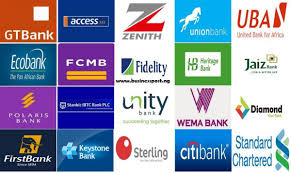BUSINESS

DIGITAL GAINS: NIGERIAN BANKS GROW E-BANKING INCOME TO ₦165.27BN IN Q1 2025
Eight of Nigeria’s leading banks collectively generated ₦165.27 billion in electronic banking income in the first quarter of 2025, despite growing competition from fintech companies. This figure marks a significant year-on-year increase of 22.3 percent compared to the ₦135.08 billion recorded in the same period of 2024.
The growth in digital income is largely attributed to a rise in customer engagement across various electronic banking platforms. Transactions via Point-of-Sale (PoS) terminals, USSD codes, Automated Teller Machines (ATMs), and internet banking services have seen a notable increase, contributing to the overall improvement in non-interest revenue.
Access Holdings Plc led the earnings chart with ₦48.35 billion in e-banking income, representing a 44.8 percent increase from ₦33.4 billion in the corresponding period last year. United Bank for Africa (UBA) followed with ₦47.8 billion, reflecting a more modest but steady growth of 7.7 percent from ₦44.4 billion in Q1 2024. GTCO also recorded impressive gains, with its electronic banking revenue rising by 51 percent to ₦17.06 billion from ₦11.3 billion.
FBN Holdings reported ₦20.14 billion, showing a 19 percent increase from ₦16.9 billion in the previous year. Wema Bank posted the most dramatic growth, with its e-banking income jumping 259.9 percent to ₦10.85 billion, up from ₦3.02 billion. In contrast, Zenith Bank reported a decline of 19 percent in digital earnings, dropping from ₦19.97 billion to ₦16.17 billion. FCMB Group also saw a downturn, with its income falling 26 percent to ₦3.8 billion from ₦5.09 billion. Stanbic IBTC Holdings posted marginal growth, increasing from ₦1.08 billion to ₦1.09 billion.
In addition to e-banking earnings, the eight banks recorded a combined ₦643.9 billion in total fees and commission income during the quarter, up by 31 percent from ₦491.72 billion reported in the first quarter of 2024. This further underscores the growing importance of non-interest income streams in their financial performance.
Despite the strong numbers, the competitive threat from fintech companies remains significant. Fintech platforms such as Opay, Palmpay, MoMo Payment Service Bank (a subsidiary of MTN Nigeria), and Airtel SmartCash continue to attract customers with zero transfer fees, simplified digital experiences, and competitive interest rates. These offerings have resonated particularly well with tech-savvy consumers and younger demographics, who value speed, convenience, and cost efficiency in financial services.
Nonetheless, the performance of traditional banks suggests they are not standing still. Many are accelerating investments in digital infrastructure, refining mobile services, and redesigning customer journeys to better compete in a rapidly evolving financial landscape. While fintechs have reshaped user expectations, established banks are leveraging their scale, trust, and regulatory experience to maintain relevance and profitability.
As digital transformation continues to reshape the industry, the ability of traditional banks to innovate and adapt will be critical to sustaining their growth and defending their market share.
"This represents a significant development in our ongoing coverage of current events."— Editorial Board









